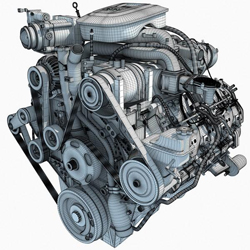P187E Engine Code Repair
Meaning of P187E engine trouble code is a kind of powertrain trouble code and P187E code can be about replacing a broken oxygen sensor can eventually lead to a busted catalytic convertor which can cost upwards of $2,200. Taking your car into a shop will cost you around $210 depending on the car. However, an oxygen sensor is easy to replace on many cars and is usually detailed in the owner's manual. If you know where the sensor is, you only have to unclip the old sensor and replace it with a new one. Regardless of how you approach it, you should get this fixed right away.
P187E Fault Symptoms :
- Check engine light comes on
- Engine stalling or misfiring
- Engine performance issues
- Car not starting
If one of these reasons for P187E code is occuring now you should check P187E repair processes.
Now don't ask yourself; What should you do with P187E code ?
The solution is here :
P187E Possible Solution:

Air Conditioning Pressure Sensor (ACP) Insufficient Pressure Change Each time the A/C clutch engages, the PCM is looking for a pressure change in the refrigerant. If the change in pressure is outside of the calibration the DTC will set. A/C system mechanical failure Open ACP or VREF circuit A/C sensor damaged A/C system electrical failure A/C clutch always engaged Verify A/C system function, including refrigerant charge.
P187E Code Meaning :
P
OBD-II Diagnostic Powertrain (P) Trouble Code For Engine
1
Fuel And Air Metering
8
Fuel Rail Pressure Sensor Circuit Malfunction
7
Cylinder 4 Contribution/Balance Fault
e
The catalytic converter has an oxygen sensor in front and behind it. When the vehicle is warm and running in closed loop mode, the upstream oxygen sensor waveform reading should fluctuate.
P187E OBD-II Diagnostic Powertrain (P) Trouble Code DescriptionP187E engine trouble code is about .Main reason For P187E CodeThe reason of P187E OBD-II Engine Trouble Code is Fuel Rail Pressure Sensor Circuit Malfunction. |
P187E DTC reports a sensor fault, replacement of the sensor is unlikely to resolve the underlying problem. The fault is most likely to be caused by the systems that the sensor is monitoring, but might even be caused by the wiring to the sensor itself.
